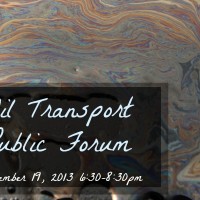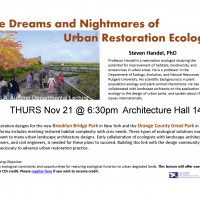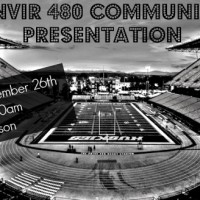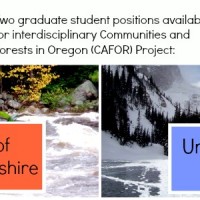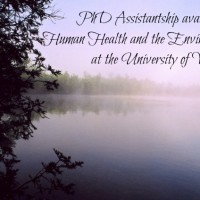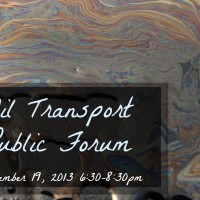Looking for a great class to round out your Winter Quarter 2014 schedule? Check this Planning and Permitting class out!
- Game Day Team
- Street Team – Help promote Recyclemania at various strategic outdoor locations on campus
- Greek Team
- Social Media/Digital Media Outreach Team
- Residence Hall Promotion Team
- International Student Outreach Team
- Your name and contact information (phone number and e-mail).
- Academic program and year in school.
- A brief written statement (200 words or less) explaining why you are interested in being a member of the committee and what skills, experience, and/or passions you plan to bring to the committee.
- Include your top two choices for teams that you would like to be a part of.
- Optional:Include suggestions of additional teams not listed that you would be interested in.
Recent technology has allowed oil companies to extract oil from tar sands and shale deposits, in Canada and U.S. The risks are wide ranging: from oil spills along rail, marine, and pipeline routes to explosions to train traffic congestion to increased carbon emissions to degradation of habitat. Ten new proposals have emerged in just the last year to ship crude oil by train to Northwest refineries and port terminals.
Join us on Tuesday, November 19th, to learn more about these oil transport proposals, the risks they pose to Washington, what protections and safeguards are currently in place, and what gaps need to be addressed to reduce the risk of oil spills.
Free Public Forum: Risky Business: How oil transport threatens Washington’s health, economy, and waters
When: Tuesday, November 19, 2013. Program 6:30-8:30pm. Doors open at 6:00 pm, snacks and beverages.
Where: Center for Urban Horticulture at University of Washington, 3501 NE 41st St., Seattle
Partner organizations: Washington Environmental Council, Citizens for a Healthy Bay, Columbia Riverkeeper, Earthjustice, Forest Ethics, Friends of the Earth, FRIENDS of the San Juans, Puget Soundkeeper Alliance, RE Sources for Sustainable Communities, Sightline Institute, and Surfrider Foundation.
Attend the following event this Thursday, November 21at 6:30pm in the Architecture Hall Room 147:
Steven Handel: “Dreams and Nightmares of Urban Restoration Ecology”
Small patches of native habitat in urban and suburban areas can supply ecological services, public amenities that are sustainable with relatively low maintenance costs. We have designed and tested a series of plantings in urban areas (parks, landfills, and brownfields) that attempt to restore ecological connections between fragmented and degraded remnant habitats.
Restoration designs for the new Brooklyn Bridge Park in New York and the Orange County Great Park in California includes meshing restored habitat complexity with civic needs. These types of ecological solutions may be relevant to many urban landscape architecture designs. Early collaboration of ecologists with landscape architects, planners, and civil engineers, is needed for these plans to succeed. Building this link with the design community will be necessary to advance urban restoration practice.
Biography:
Professor Steven Handel of Rutgers University is a restoration ecologist studying the potential for improvement of habitats, biodiversity, and ecoservices in urban areas. His scientific background is in plant population ecology and plant-animal interactions. He has collaborated with landscape architects on the application of ecology to the design of urban parks, and spoken about these issues internationally. He is an Aldo Leopold Leadership Fellow of the Ecological Society of America and a Fellow of the American Association for the Advancement of Science. He serves as Editor of Ecological Restoration. He was awarded “Honorary Membership” to the American Society of Landscape Architects for “nationally or internationally significant achievements” important to that profession. In 2011, he received the Theodore Sperry Award by the Society for Ecological Restoration International for “pioneering work in the restoration of urban areas.” The Sperry Award, given only every other year, is the highest research award for ecological restoration in the world. Handel received his B.A. from Columbia College and Ph.D. from Cornell University, in the Field of Ecology and Evolution.
- Wednesday, December 11, 2013 @ 11:00 am, 459 Schmitz Hall (UW Study Abroad Office)
- Wednesday, January 8, 2014 @ 11:00 am, 459 Schmitz Hall (UW Study Abroad Office)
Sports and Sustainability- Nothing in common? Think again.
This Fall Quarter, Program on Environment ENVIR 480 students initiated innovative projects to help ramp up Husky “Green Team” efforts.
Please join us on Tuesday November 26th, 2013 for their community presentation and hear about their innovative efforts to evaluate and support sustainability by Husky Athletics.
What: Community Presentation and Q&A
Time: Tuesday November 26th: presentation from 11:00am-11:50am, followed by a reception with light snacks and refreshments until 12:20pm.
Place: Assembly Room, Hec Edmundson (Meet in arena at 10:55 to be escorted to room if needed)
Topics include: Athlete Engagement in Locker Room Waste Diversion, Local Food at Husky Stadium, Carbon Footprinting and Offsetting of Game Day Travel, and Fan Outreach and Education
Partners include: Husky Athletics, UW Recycling, Environmental Stewardship and Sustainability Office, Green Sports Alliance and more.

For more information, please email the instructor Megan Horst at horstm@uw.edu.
University of Colorado, Boulder.
A PhD or MS position available beginning fall 2014 in the Environmental Studies Program (http://envs.colorado.edu) with two years of funding guaranteed to develop a dissertation/thesis related to the CAFOR project (see below for project description). The position involves development and analysis of a survey of local residents and integration with environmental data. Though the student will be located in Boulder, s/he will need to work closely with the University of New Hampshire research team and research collaborators in Oregon.
Deadlines for fall 2014 applications to the Environmental Studies Program: December 1, 2013 for International Students; December 23, 2013 for all others; January 6, 2014 for all recommendations. Additional information can be found at http://envs.colorado.edu/grad_program/C30/How%20to%20Apply/.In addition, please send a letter of interest, curriculum vitae, unofficial transcripts, and any relevant materials to joel.hartter@unh.edu. Position is with Dr. Joel Hartter (http://envs.colorado.edu/people/Cxx/faculty_details/hartter_joel/) and co-advised by Larry Hamilton (http://pubpages.unh.edu/~lch/).
University of New Hampshire, Durham.
A PhD or MS position available beginning fall 2014 in the Department of Natural Resources and the Environment (www.nre.unh.edu/) and theEarth Systems Research Center (www.esrc.sr.unh.edu) with two years of funding guaranteed to develop a dissertation/thesis related to the CAFOR project (see below for project description). The position involves the characterization forest biometric properties using field data and remotely sensed image data. The remote sensing platforms will include unmanned aerial vehicles (UAV), airplane, and satellite sensors. Extensive field work is a requirement of the position.
The application process for the M.S. program in Natural Resources and the Ph.D. program in Natural Resources and Earth Systems Science (NRESS) can be found at www.gradschool.unh.edu. Additional information on the M.S. program can be found at www.nre.unh.edu, and on the Ph.D. program at www.unh.edu/nressphd. Although the M.S. program employs rolling admissions, candidates at either level should apply before the Ph.D. program deadline of January 15, 2014.
In addition, please send a letter of interest, curriculum vitae, unofficial transcripts, and any relevant materials to mark.ducey@unh.edu. Position is with Drs. Mark Ducey (http://nre.unh.edu/faculty/ducey) and Michael Palace (http://www.eos.unh.edu/Faculty/mpalace).
Position: PhD Assistantship; Three years of funding available (research and teaching assistantship) with a goal of securing project funding for the duration of the students’ program.
Project background: Dr. Christine Vatovec has funding available for one doctoral-level student to conduct environmental health social science research that is related to medical care. Current projects focus on two areas regarding the interplay between human health and the environment: 1) the socio-ecological consequences of medical care, and 2) the human health benefits of nature contact.
Responsibilities: The successful applicant will work with Dr. Vatovec to develop a research protocol, apply for grant funding, conduct field research (e.g. interviews, observations), analyze data, and prepare publications and presentations for academic and lay audiences. The position is for a minimum of three years during which time the student will serve as a teaching assistant (10 hours/week) and research assistant (10 hours/week).
Qualifications: The successful applicant will have a background in environmental studies or a related discipline, and an interest in environmental health, social science research, and qualitative methodology. While not required, preference will be given to applicants who have earned a MPH, or are interested in participating in the Certificate in Public Health program (http://learn.uvm.edu/health-3/public-health-certificate/) at UVM.
To apply: Interested applicants should submit the following materials to Dr. Vatovec by January 20th:
1. A letter of interest (two pages, maximum) that outlines the applicant’s professional interest in environmental health and career plans, why earning a PhD the best path for achieving your career goals, and experience with qualitative social science methods,
2. the names and contact information of three references,
3. unofficial transcripts, and GRE scores, and
4. your current CV (please include your GPA from your current or most recently completed graduate studies).
In addition, applicants will need to apply to the Rubenstein School of Environment and Natural Resources (RSENR) Graduate School before February 1st (Graduate application process). In your application, be sure to state your preference for working with Dr. Vatovec. If you would like to discuss this assistantship before applying, please contact Dr. Vatovec.
Application Deadline: Applications are due to the UVM Graduate College by February 1st; letters of interest and supporting materials are due to Dr. Vatovec by January 20th
Recent technology has allowed oil companies to extract oil from tar sands and shale deposits, in Canada and U.S. The risks are wide ranging: from oil spills along rail, marine, and pipeline routes to explosions to train traffic congestion to increased carbon emissions to degradation of habitat. Ten new proposals have emerged in just the last year to ship crude oil by train to Northwest refineries and port terminals.
Join us on Tuesday, November 19th, to learn more about these oil transport proposals, the risks they pose to Washington, what protections and safeguards are currently in place, and what gaps need to be addressed to reduce the risk of oil spills.
Free Public Forum: Risky Business: How oil transport threatens Washington’s health, economy, and waters
When: Tuesday, November 19, 2013. Program 6:30-8:30pm. Doors open at 6:00 pm, snacks and beverages.
Where: Center for Urban Horticulture at University of Washington, 3501 NE 41st St., Seattle
Partner organizations: Washington Environmental Council, Citizens for a Healthy Bay, Columbia Riverkeeper, Earthjustice, Forest Ethics, Friends of the Earth, FRIENDS of the San Juans, Puget Soundkeeper Alliance, RE Sources for Sustainable Communities, Sightline Institute, and Surfrider Foundation.
This course examines the earth’s past for evidence of extreme climate conditions in order to better understand possible future climate changes. Conditions that occurred during the Neo-Proterozoic (Snowball Earth: 750 to 550 million years ago), the Cretaceous Hothouse (100 million years ago, and Pleistocene Icehouse (1 million years ago) will be compared to the Present Day Greenhouse climate.
Dramatic changes in the earth’s climate has resulted from natural variations in solar insolation, atmospheric concentrations of greenhouse gases, rates of ocean circulation, plate tectonics and volcanic activity, the evolution of vascular plants and, in recent times, the burning of fossil fuels. The impact of these factors on climate, through interactions between the atmosphere, oceans and land, will be discussed.
Importantly, the processes that produced past climate changes will be discussed in the context of modern impending climate change.
One class period per week will be spent in class discussion of an important published scientific paper on Climate. Problem sets, stressing quantitative solutions, will be given as take home assignments during the quarter. Honors students will work in multi-student teams on a project to quantify the CO2 emissions from the City of Seattle. These emissions are responsible for the CO2 ‘dome’ that overlies most large urban areas.
Climatic Extremes
Oceanography 450: Winter Quarter, 2014: SLN 17655
4 credits M, W, Th, F at 11:30 to 12:20
also Honors 221C: SLN 14913 5 credits
Room 205 Ocean Teaching Building
Web address: https://catalyst.uw.edu/workspace/paulj/13956/
Instructors: Paul Johnson (543-8474) Steve Emerson (543-0428)
Teaching Assistant: Megan Gambs (543-8543)


